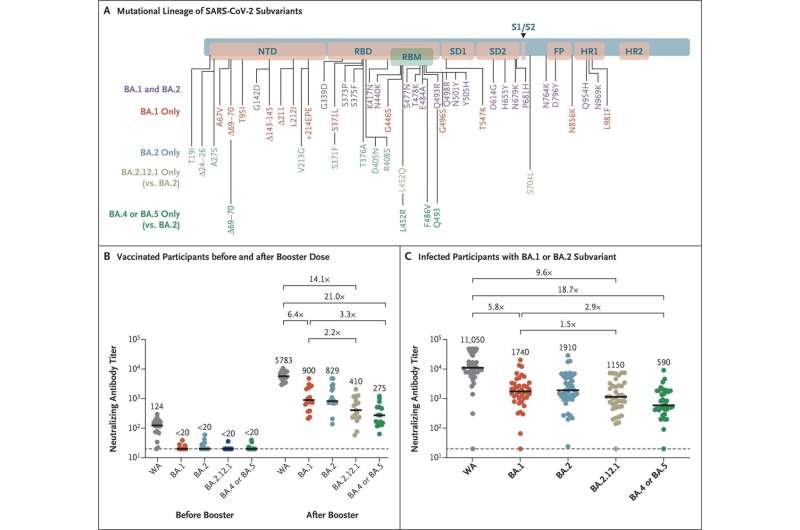
Since the initial highly infectious SARS-CoV-2 omicron variant (officially known as BA.1 or B.1.1.529) of COVID-19 emerged last fall, new subvariants of omicron continue to evolve.
Notably, the omicron subvariants BA.4 and BA.5—not identified in the United States until late April—now account for more than 21% of new cases, according to the Centers for Disease Control and Prevention’s (CDC) estimates for the week ending June 11. New variants that emerge may be more transmissible and/or may more effectively bypass the immune protection from prior infection or vaccination.
In a letter published in the New England Journal of Medicine, physician-scientists at Beth Israel Deaconess Medical Center (BIDMC) report that the three omicron subvariants currently dominant in the United States—officially known as subvariants BA.2.12.1, BA.4, and BA.5—substantially escape neutralizing antibodies induced by both vaccination and previous infection.
Barouch and colleagues evaluated antibody responses to multiple SARS-CoV-2 omicron subvariants in 27 vaccinated and boosted individuals and 27 individuals who had previously contracted COVID-19. Neutralizing antibody responses to BA.4 and BA.5 were approximately 20-fold lower than to the original WA1/2020 strain and were 3-fold lower than to the omicron BA.1 and BA.2 variants.
Source: Read Full Article